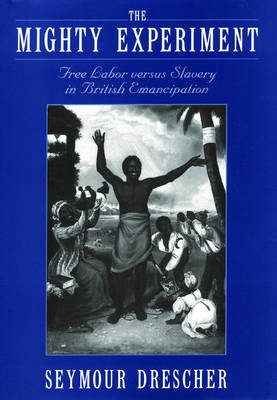By the third quarter of the eighteenth century, Great Britain had amassed Europe's largest imperial stake in the transatlantic slave system. During the next three generations the British dismantled that stake in a graduated series of withdrawals. This process has been portrayed, on the one hand, as a rational disinvestment in a foundering overseas system by the world's greatest and most dynamic economic power. On the other hand, it has been assessed as the world's most expensive per capita overseas investment in modern history. In this latter perspective, British anti-slavery was the the crucial element in the greatest humanitarian achievement of all time. For those who actually planned, debated, implemented, and adjusted to the process, ending British slavery was best conceived neither as a timely withdrawal from a failed economy nor an unprecedented national sacrifice. Properly done, it was to be a rational social experiment. Emancipation was designed to simultaneously minimize agitation on both sides of the Atlantic, and to maximize the scientifically proven superiority of free over slave labor.
It would thereby not only benefit planters, consumers, and capitalists within the empire, but also accelerate the peaceful and voluntary surrender of millions of chattels throughout the world. The implementation and evaluation of emancipation turned out to be a far more contentious affair than the originators had anticipated. It absorbed minds of a whole generation of parliamentarians, governments, and journalists. The origin, execution, and public assessment of this great experiment, in its own contemporary terms, is the subject of this study.
- ISBN10 0195093461
- ISBN13 9780195093469
- Publish Date 11 April 2002
- Publish Status Out of Print
- Out of Print 20 April 2021
- Publish Country US
- Imprint Oxford University Press Inc
- Format Hardcover
- Pages 318
- Language English
